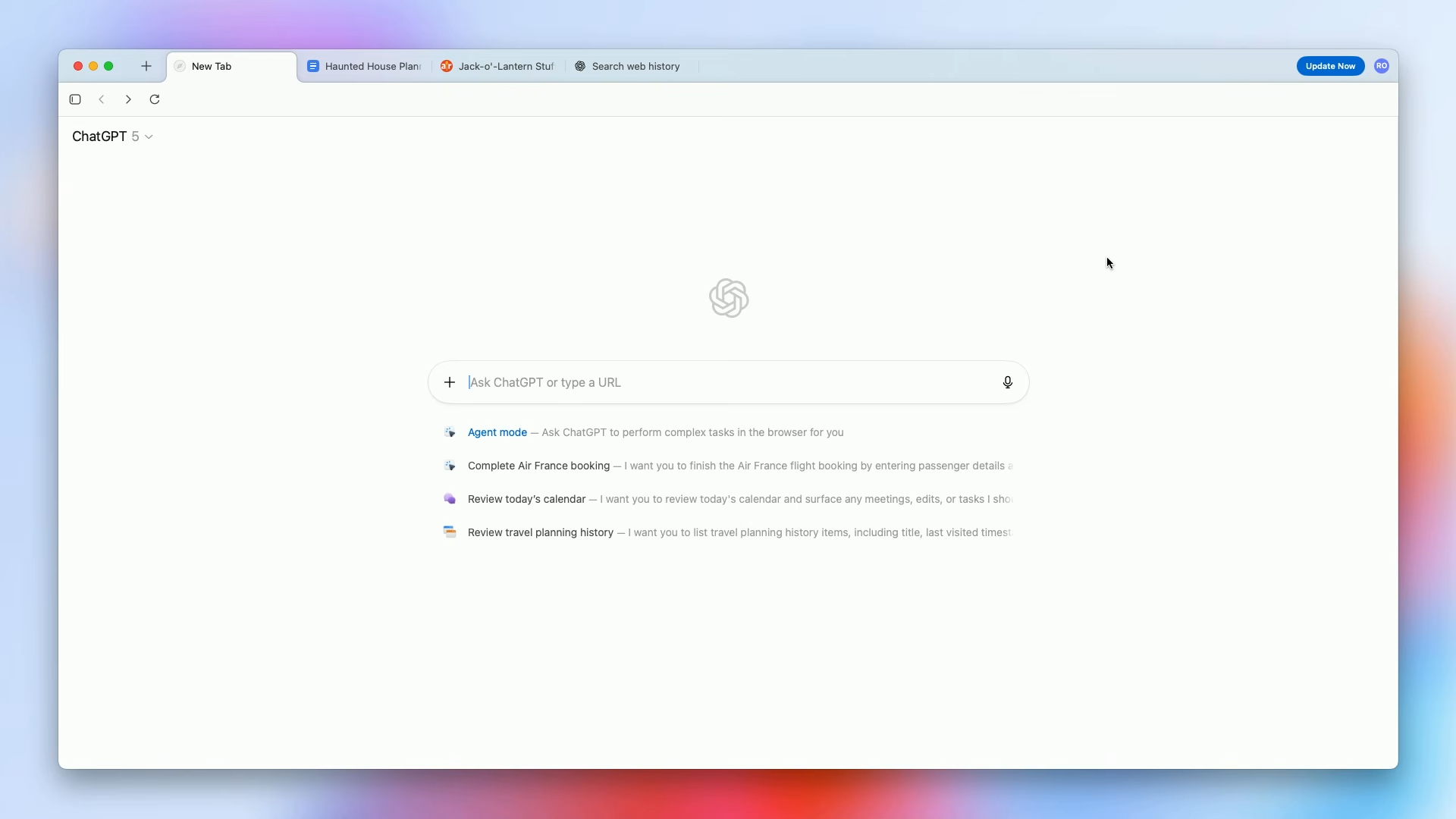OpenAI Launches ChatGPT Atlas Browser on macOS
OpenAI launches ChatGPT Atlas, an AI-integrated browser for macOS, challenging Google and Microsoft in the AI browser market.

Introduction to ChatGPT Atlas
In a bold move to reshape the web browsing experience, OpenAI has launched ChatGPT Atlas, a browser integrating the powerful AI capabilities of ChatGPT directly into the browsing interface. This development marks a significant step in OpenAI's strategy to expand its AI offerings beyond standalone apps, positioning it as a direct competitor to tech giants like Google and Microsoft. The browser was released on October 21, 2025, and is initially available on macOS for various user tiers, including Free, Plus, Pro, and Go users globally, with a beta version for Business users.
ChatGPT Atlas is designed to fundamentally alter how users interact with the internet by providing integrated AI assistance throughout the browsing experience. This includes features like chat everywhere, where ChatGPT follows users across web pages, offering real-time assistance and analysis. Another key feature is browser memories, which allow ChatGPT to remember users' browsing habits and preferences, enhancing search functionality and personalization.
However, despite its innovative features, cybersecurity experts have raised concerns about the browser's vulnerability to prompt injection attacks, which could potentially compromise user data or perform harmful actions.
Key Features of ChatGPT Atlas
Chat Everywhere
- AI Assistance Across Web Pages: ChatGPT Atlas ensures that AI assistance is always available, whether users are working on emails, reading GitHub pull requests, or comparing products. This feature eliminates the need for users to switch between tabs or copy and paste content, as ChatGPT can analyze and interact with whatever is on the screen.
Browser Memories
- Personalized Browsing Experience: By enabling browser memories, ChatGPT can recall key details from users' browsing history, allowing for smarter suggestions and improved search capabilities. Users can manage these memories through settings, including archiving or deleting them as needed.
Agent Mode (Preview)
- Autonomous Task Execution: Available for Plus, Pro, and Business users, agent mode empowers ChatGPT to perform tasks on behalf of the user, such as planning a meal and adding groceries to a shopping cart. Users remain in control, with the ability to pause or interrupt tasks at any time.
Industry Impact and Competition
The launch of ChatGPT Atlas signifies OpenAI's aggressive expansion into the broader computing landscape, challenging established players like Google and Microsoft. Google has recently integrated its Gemini AI model into Chrome, while Microsoft has also launched a nearly identical AI-powered browser, highlighting the intense competition in the AI browser market.
This surge in AI-powered browsers reflects a broader trend where tech companies are integrating AI capabilities into their core products to enhance user experience and gain a competitive edge. However, the security concerns associated with these new technologies pose significant challenges that companies must address to ensure user trust and safety.
Cybersecurity Concerns
Cybersecurity experts warn that AI browsers, including ChatGPT Atlas, are vulnerable to prompt injection attacks. These attacks involve malicious instructions being given to AI systems to behave in unintended ways, potentially leading to data breaches or worse. As AI becomes more integrated into daily computing, addressing these security risks will be crucial for the success of these platforms.
Context and Implications
The introduction of ChatGPT Atlas marks a new era in web browsing, where AI is not just a peripheral feature but a central component of the user experience. While the benefits of such integration are clear, the risks associated with AI-driven interactions must be carefully managed to protect user privacy and security.
OpenAI's move into the browser market is part of a larger strategy to position itself as a major player in the technology sector, alongside giants like Google and Microsoft. The success of ChatGPT Atlas will depend on its ability to balance innovation with security, ensuring that users feel both empowered and protected by the AI-driven features it offers.
Future Developments
As AI technology continues to evolve, we can expect further innovations in browser design and functionality. The integration of AI into daily computing tasks will likely become more prevalent, challenging developers to create secure, user-friendly interfaces that harness the power of AI while mitigating its risks.
In conclusion, ChatGPT Atlas represents a significant step forward in AI-driven browsing, but its long-term success will depend on addressing the security concerns that come with such powerful technology.
Visual Elements: For a comprehensive understanding of ChatGPT Atlas, images of the browser in action, screenshots of its features, and official logos or product photos from OpenAI would be essential. These visual aids can help illustrate the browser's interface and functionalities, such as chat everywhere and browser memories.
Additional Resources:
- Official Release Notes: OpenAI Help Center provides detailed information on ChatGPT Atlas, including its features and user guidelines.
- Cybersecurity Reports: Reports from cybersecurity experts highlight the potential vulnerabilities of AI browsers like ChatGPT Atlas.
- Industry Analysis: Articles from tech publications offer insights into the competitive landscape and future directions of AI-powered browsers.



